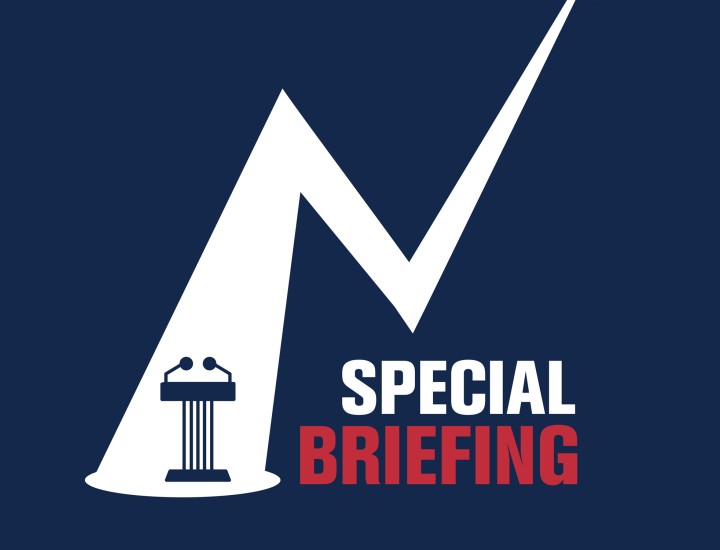Volcker Alliance Study Inspires Budget Forecasting Bill in Utah
The House and Senate of the State of Utah unanimously passed House Bill 452 to institute multiyear estimates for state revenues and expenses as advocated by the Volcker Alliance. Passage of the measure followed the Volcker Alliance’s release of Budget Report Cards for Utah and forty-nine other states earlier this year as well as the study Truth and Integrity in State Budgeting: What is the Reality? published in November 2017.
The new Utah law, titled Legislative Fiscal Analyst Amendments, requires the Office of the Legislative Fiscal Analyst to evaluate current and long-term trends relating to taxes and federal fund receipts and requires the initiation of a three-year cycle of analysis on revenue volatility and other budget matters.
William Glasgall, senior vice president and director of the Volcker Alliance’s state and local initiatives, said, “in fiscal 2015 through 2017, only nine states received average A grades for their budget forecasting procedures in our study. The Utah legislation addresses some of the areas in which Utah could improve its budget practices. It is gratifying to see the positive changes Utah has introduced and we look forward to assisting other states to introduce similar improvements. Our goal is to provide tailored insights and tools to help elected officials, investors, policy advocates, and citizens determine and improve their state’s fiscal governance and sustainability.”
The Volcker Alliance’s November 2017 study, Truth and Integrity in State Budgeting: What is the Reality? examines key budgeting and transparency practices of all fifty US states, and is accompanied by a set of report cards grading the states in five areas of best practices. Among those best practices, the Alliance defines a multiyear, consensus approach to establishing single, binding estimates for revenues and expenditures before the budgeting process begins as a necessary step to create accurate, sustainable, and transparent budgeting.
The Utah measure (House Bill 452 and Senate Bill 452) won passage in early March and was signed into law on March 19. In floor speeches House Majority Leader Brad R. Wilson and Senator Kevin T. Van Tassell both credited the Volcker Alliance with providing the impetus for the bill.
In his remarks, Senator Van Tassell referred to the Alliance’s grades for Utah’s budget practices and said “One of the areas where Volcker Alliance . . . said Utah could improve [is] longer term budgeting. This bill addresses that goal and strengthens our tradition of planning for the worst and hoping for the best.”
Meanwhile, Majority Leader Wilson observed that the bill would help Utah’s state budgeting practices surpass Idaho’s in the Volcker Alliance’s analysis. “Representatives, you might think this is called the Legislative Fiscal Analysis Amendments Bill,” Wilson said, “but this is called the ‘Beat Idaho Bill.’ Let me tell you why . . . There’s an organization called the Volcker Institute [sic] that gives states a [grade] based on how well they manage their budgeting process, and, in all humiliation, we’ve taken second place in the country to Idaho. We can’t let that stand, Representatives. We’ve got to fix that. So that’s what this bill is all about . . . This is another tool in our legislative fiscal analysis office that they can use to give us good information so as lawmakers we can make good decisions.”
In the Volcker Alliance’s three-year assessment of state budgeting practices, Idaho received average A grades in Budget Maneuvers, Legacy Costs (principally public employee pensions and postretirement health care), and Reserve Funds, a B in Transparency, and a D in Budget Forecasting. Utah won A grades in Budget Maneuvers, Legacy Costs, and Reserve Funds, and a C in both Transparency and Budget Forecasting.
Truth and Integrity in State Budgeting: What is the Reality? is the result of a multi-year study conducted in partnership with more than fifty professors and graduate students in public finance and budgeting at eleven US schools of public administration or policy. Juliette Tennert, University of Utah’s Director of Economic and Public Policy Research, and a member of the Alliance’s research network who led the team’s examination of her state’s budget, said, “Working with the Volcker Alliance on the Truth and Integrity in State Budgeting project has been an incredible opportunity to provide actionable research and influence informed decisions. We are thrilled to see how the work is supporting public budgeting processes in this environment of more and more scarcity in resources and ever-growing critical needs.”
All fifty report cards are accessible through an interactive map and include grades on each state’s critical budget practices plus a detailed breakdown of the assessments.


